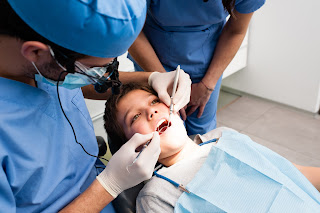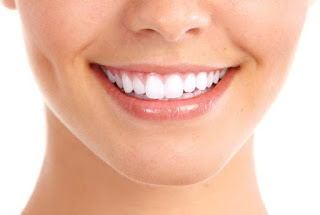 This is Oral Cancer Awareness month, and there are facts that you need to know. Every hour someone dies of oral cancer. This is a cancer that gets very little attention so while most people are familiar with breast cancer and lung cancer, oral health tends to be neglected. Given the number of people that are diagnosed with and die of this condition, you need to be sure to visit our dentist office for a cancer screening. We highly recommend that you do so on an annual basis since, like most cancers, this can be treated and cured with early detection. However, if you allow it to grow and spread, it can become difficult to treat.
This is Oral Cancer Awareness month, and there are facts that you need to know. Every hour someone dies of oral cancer. This is a cancer that gets very little attention so while most people are familiar with breast cancer and lung cancer, oral health tends to be neglected. Given the number of people that are diagnosed with and die of this condition, you need to be sure to visit our dentist office for a cancer screening. We highly recommend that you do so on an annual basis since, like most cancers, this can be treated and cured with early detection. However, if you allow it to grow and spread, it can become difficult to treat.
What causes oral cancer in the first place?
There are many causes of oral cancer, some of which you can control. At the top of the list is tobacco products. This includes smoking and chewing tobacco. We have found that many people tend to stop smoking because they are aware of the danger to their lungs and heart. Some people start chewing tobacco instead. The problem is that chewing tobacco is a leading cause for oral cancer and can increase your risk of it by sixty times.
Another major cause of oral cancer, though less known, is the HPV virus. There are around 400 strains of HPV, and while many people think of it in the context of being a sexually transmitted disease, it is taking over tobacco use as the leading cause of oral cancer. The problem with HPV is that most people never know that they have the virus or how it will manifest. It can lead to something obvious like warts or go undetected for years until you all of a sudden have signs of cancer. Additionally, this particular STD is so common that the CDC believes that most adults will contract it at some point in their lifetime. Since this is Oral Cancer Awareness month, you should know that this is one of the reasons doctors are now recommending that children receive the HPV vaccine.
As a dentist, we also know that drinking alcohol in excess can lead to oral cancer. Most people don't associate the two, but it has a similar risk factor to smoking. This doesn't particularly apply to casual drinking but drinking excessive amounts on a regular basis. We also recommend that you avoid overexposure to the sun since this is known to increase the risk of oral cancer as well.
Signs to watch for.
Early detection is critical, and we perform oral cancer awareness month in our dental office. We are the best medical professional to do so because we know what your mouth should look like and can easily identify any abnormalities. At home, you can help by watching for red and white bumps inside of your mouth. You should also use your tongue to check for rough patches or hard bumps and lumps that can also be signs of cancer. If you notice anything out of the ordinary, give us a call for a thorough examination.
 Would you believe,
Would you believe, 



